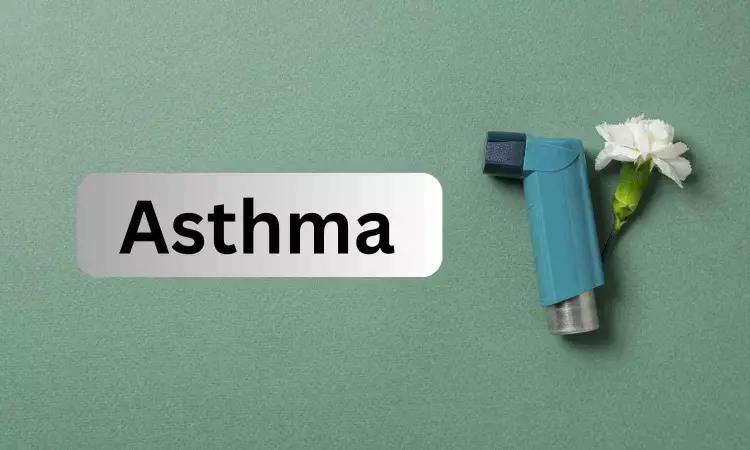- Home
- Medical news & Guidelines
- Anesthesiology
- Cardiology and CTVS
- Critical Care
- Dentistry
- Dermatology
- Diabetes and Endocrinology
- ENT
- Gastroenterology
- Medicine
- Nephrology
- Neurology
- Obstretics-Gynaecology
- Oncology
- Ophthalmology
- Orthopaedics
- Pediatrics-Neonatology
- Psychiatry
- Pulmonology
- Radiology
- Surgery
- Urology
- Laboratory Medicine
- Diet
- Nursing
- Paramedical
- Physiotherapy
- Health news
- Fact Check
- Bone Health Fact Check
- Brain Health Fact Check
- Cancer Related Fact Check
- Child Care Fact Check
- Dental and oral health fact check
- Diabetes and metabolic health fact check
- Diet and Nutrition Fact Check
- Eye and ENT Care Fact Check
- Fitness fact check
- Gut health fact check
- Heart health fact check
- Kidney health fact check
- Medical education fact check
- Men's health fact check
- Respiratory fact check
- Skin and hair care fact check
- Vaccine and Immunization fact check
- Women's health fact check
- AYUSH
- State News
- Andaman and Nicobar Islands
- Andhra Pradesh
- Arunachal Pradesh
- Assam
- Bihar
- Chandigarh
- Chattisgarh
- Dadra and Nagar Haveli
- Daman and Diu
- Delhi
- Goa
- Gujarat
- Haryana
- Himachal Pradesh
- Jammu & Kashmir
- Jharkhand
- Karnataka
- Kerala
- Ladakh
- Lakshadweep
- Madhya Pradesh
- Maharashtra
- Manipur
- Meghalaya
- Mizoram
- Nagaland
- Odisha
- Puducherry
- Punjab
- Rajasthan
- Sikkim
- Tamil Nadu
- Telangana
- Tripura
- Uttar Pradesh
- Uttrakhand
- West Bengal
- Medical Education
- Industry
Rademikibart may decrease exacerbation rates in patients with uncontrolled asthma: Study

A new study published in the American Journal of Respiratory and Critical Care Medicine showed that rademikibart dramatically decreased exacerbation rates and increased FEV1 in moderate-to-severe uncontrolled asthma, particularly in instances driven by eosinophils.
In 2020, 25.3 million Americans (7.8% of the population) suffered from asthma, a chronic immunological illness that causes attacks in more than 40% of cases. 5% to 10% of people have severe asthma. Based on the likelihood of hospitalization, related expenses, and the effect on quality of life, moderate-to-severe uncontrolled asthma has a high burden.
If asthma is not managed, severe exacerbations can happen many times a year, necessitate immediate therapeutic intervention (e.g., systemic corticosteroids), and can lead to hospitalization and ER visits. A humanized IgG4 kappa monoclonal antibody called Rademikibart (formerly known as CBP-201) interacts with IL-4Rα to prevent proinflammatory IL-4 and IL-13 cytokines from signaling. Thus, to assess rademikibart in people with moderate-to-severe, chronic, uncontrolled asthma, this research was carried out.
A total of 322 patients were randomly assigned 1:1:1 to receive either a placebo or either of the rademikibart groups (150 mg or 300 mg every other week after a 600 mg loading dose) subcutaneously for 24 weeks in this international phase 2b study. Both 150 mg and 300 mg of rademikibart enhanced prebronchodilator (trough) forced expiratory volume in the first second of expiration (FEV1) at Week 12 (primary endpoint): the least squares mean increases (95% CI) over placebo were +140 mL and +189 mL, appropriately.
Improvements in FEV1 brought on the prebronchodilators happened quickly in Week 1, lasted until Week 24, and were highest in individuals with elevated baseline blood eosinophil counts. The Asthma Control Questionnaire score and the percent predicted FEV1 both showed quick and long-lasting statistically significant improvements over the course of 24 weeks.
Up until Week 24, 7.5% of patients (150 mg) and 9.3% (300 mg) experienced at least one exacerbation, when compared to 16.7% (placebo). 88% of patients finished their course of therapy. There was no evidence of eosinophilia, and treatment-emergent adverse events (TEAEs) were mostly comparable to placebo.
Overall, the patients with moderate-to-severe uncontrolled asthma showed quick and long-lasting improvements in lung function after taking 150 mg and 300 mg of rademikibart Q2W for 24 weeks. Along with these gains in lung function, asthma management improved quickly and dramatically.
Reference:
Kerwin, E., Yang, T., Su, N., Guo, J., Adivikolanu, R., Longphre, M., Wang, J., Yun, J., Pan, W., Wei, Z., & Collazo, R. (2025). Rademikibart treatment for moderate-to-severe, uncontrolled asthma: A phase 2B randomized trial. American Journal of Respiratory and Critical Care Medicine. https://doi.org/10.1164/rccm.202409-1708OC
Neuroscience Masters graduate
Jacinthlyn Sylvia, a Neuroscience Master's graduate from Chennai has worked extensively in deciphering the neurobiology of cognition and motor control in aging. She also has spread-out exposure to Neurosurgery from her Bachelor’s. She is currently involved in active Neuro-Oncology research. She is an upcoming neuroscientist with a fiery passion for writing. Her news cover at Medical Dialogues feature recent discoveries and updates from the healthcare and biomedical research fields. She can be reached at editorial@medicaldialogues.in
Dr Kamal Kant Kohli-MBBS, DTCD- a chest specialist with more than 30 years of practice and a flair for writing clinical articles, Dr Kamal Kant Kohli joined Medical Dialogues as a Chief Editor of Medical News. Besides writing articles, as an editor, he proofreads and verifies all the medical content published on Medical Dialogues including those coming from journals, studies,medical conferences,guidelines etc. Email: drkohli@medicaldialogues.in. Contact no. 011-43720751


